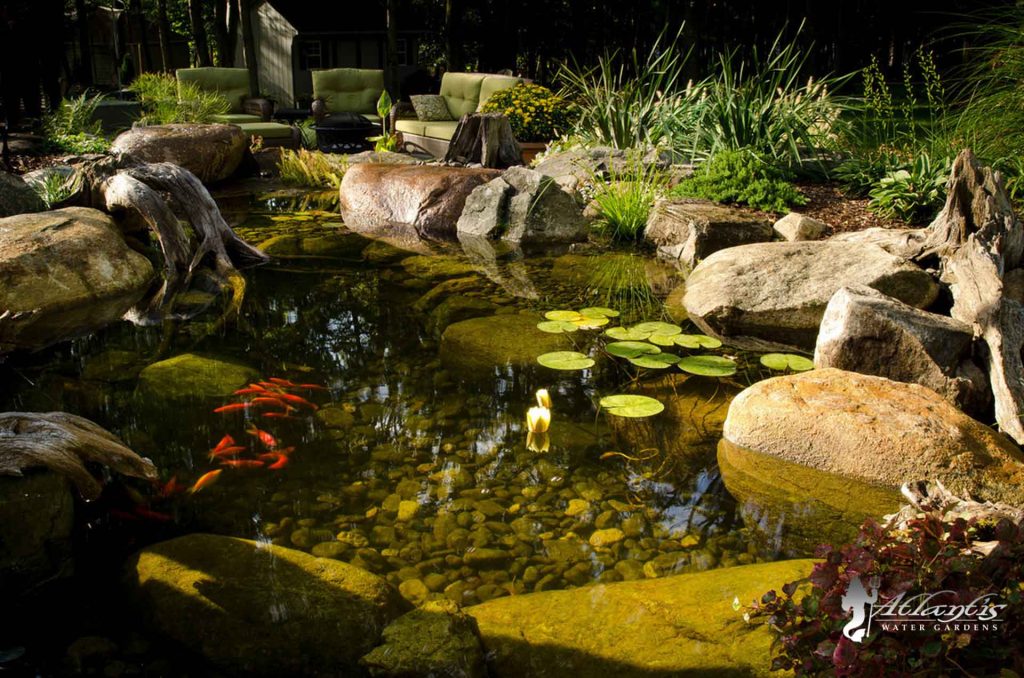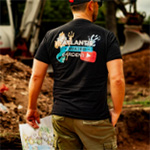Winter can take a toll on your pond. As water temperatures drop, a thick layer of ice can form on the surface of your pond. As a result, toxic gases can get trapped in the water, increasing the risk of a fish kill. Cold temperatures can also harm your plants, and even kill them.
Winterizing your pond is a great way to protect the plants and fish in it. Here are some tips to prepare your pond for cold weather.

Treat Your Pond Water
Cold water bacteria help maintain water quality by decomposing organic debris like fish waste. Consider adding cold water beneficial bacteria to your pond. A good cold-water bacteria treatment makes pond maintenance a breeze. As a result, you spend less time maintaining your pond and more time enjoying it. Top-of-the-line treatments are designed to work in water temperatures as low as 32 degrees.
Install Pond Netting
Why wait for leaves and other debris to end up in your pond and then remove them, when you can prevent them from making their way into your pond by putting a net over it in the first place? Remove the leaves and other debris in your pond net at regular intervals.
Remove Leaves and Debris
If you haven’t installed pond netting, use a long-handled skimmer net to scoop out debris from the surface and bottom of your pond. If you fail to do so, the debris at the bottom of your pond can decay over time, affecting pond water quality. Therefore, even with pond netting, you will want to clean your pond periodically.
Trim Back Dead Foliage
Trimming dead foliage in your pond is a great way to remove excess organic debris that would otherwise decompose in the water. Trim back any hardy marginal plants and leave them in the water. Remove any tropical plants from your pond and move them inside your home.
Feed Your Fish Less Frequently
Fish slow down their heart rate and metabolism in winter. As a result, they tend to be less active and need very little to no food to survive. If you overfeed your fish in winter, they may excrete more. Fish excreta is a source of ammonia. Ammonia is also produced when uneaten fish feed completely breaks down or metabolizes.
If allowed to accumulate, ammonia can affect pond water quality. To prevent water quality problems, stop feeding your fish once the water temperature goes below 50 degrees F.
Whether you want to add a pond or any other water feature to your backyard, Atlantis Water Gardens has got you covered. Our experience enables us to bring our customers’ vision to life. To schedule a fish pond repair near you in Randolph, call 973-627-0515.
Lovin’ It? Want more pics?
We got em. 🙂 Here’s some pretty photos you can look at to destress.

Founder & Master Pond Builder
Jaak Harju is the founder and master pond builder of Atlantis Water Gardens, a family-owned design and build firm specializing in natural-looking ponds, waterfalls, and ecosystem water features. Since 2000, Jaak has dedicated his career to creating outdoor environments that inspire connection with nature.
With a background in landscape design and construction, Jaak brings artistry and precision to every project. He’s known nationally for his creative stonework, ecological pond design, and educational outreach within the pond-building community. Through his work, videos, and collaborations with other Aquascape-certified contractors, Jaak has helped redefine backyard water features as sustainable, living ecosystems.